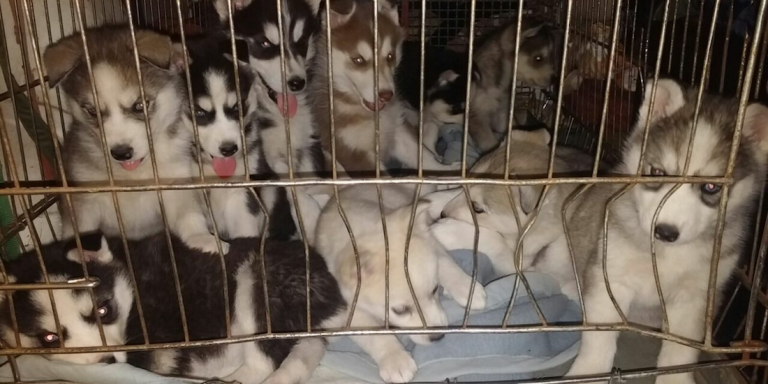
European Parliament prepares to vote on groundbreaking animal protection legislation amid enforcement concerns
Paris – The European Union’s ambitious attempt to establish comprehensive welfare standards for cats and dogs faces critical scrutiny as lawmakers prepare to vote on legislation that advocates warn could inadvertently strengthen illegal pet trafficking networks across the continent.
The European Parliament is expected to vote Thursday in Strasbourg on the E.U.’s first-ever comprehensive pet welfare law, designed to regulate a market generating €1.3 billion annually. While the legislation represents a significant step forward in animal protection, mounting concerns from MEPs and animal welfare organizations highlight potentially dangerous loopholes that could undermine the law’s humanitarian objectives.
Microchipping Requirements Aim to Combat Fraud

The proposed legislation mandates electronic microchip identification for all pets before they enter the market.
This creates a digital trail designed to reduce fraud and improve enforcement of animal welfare standards.
The European Commission introduced the proposal in December 2023, targeting controversial practices including ear cropping while establishing minimum breeding and keeping standards across all 27 member states.
“This regulation represents the E.U.’s commitment to treating animals with dignity and respect,” said Georgia Diamantopoulou from Four Paws, an international animal welfare organization.
“However, the devil is in the details, and current loopholes threaten to undermine these noble intentions.”
The legislation’s traceability requirements would theoretically create accountability throughout the pet supply chain, from breeders to final owners.
E.U. ministers adopted their negotiating position last year, setting the stage for Thursday’s parliamentary vote and subsequent inter-institutional negotiations.
Online Trading Platforms Escape Verification Requirements
The most significant concern centers on the legislation’s treatment of online pet sales, where most illegal trafficking occurs. Despite digital platforms serving as primary marketplaces for pet transactions, the current proposal does not require sellers to undergo verification before posting listings.
Only nine E.U. countries currently mandate basic standards for online pet sales, creating a patchwork of enforcement that illegal traders exploit systematically. Anonymous listings, unlicensed sellers, and identification bypasses flourish in this regulatory vacuum, enabling sophisticated criminal networks to operate with impunity.
Animal welfare advocates are pushing for amendments requiring simple verification systems similar to credit card authentication, ensuring online sellers remain traceable and accountable. This approach would close critical gaps without imposing excessive burdens on legitimate breeders and sellers.
Underground Market Thrives Through Regulatory Avoidance
A related problem involves sellers masquerading as “private individuals” to circumvent licensing requirements, mandatory health checks, registration obligations, and tax responsibilities. This deceptive practice enables a vast underground market that operates outside regulatory oversight while generating substantial profits for unscrupulous actors.
The European Parliament faces pressure to address these evasion tactics through targeted amendments that would strengthen verification requirements and eliminate regulatory arbitrage opportunities.
Small Breeder Exemptions Raise Puppy Mill Concerns
Perhaps the most contentious aspect involves proposed exemptions for breeders producing three litters or fewer annually.

Eurogroup for Animals estimates this exemption could exclude approximately 80% of all breeders from oversight, many operating without proper regulation or welfare standards.
The mathematics are sobering: a single unregulated breeder can produce up to 100 puppies or kittens over an animal’s reproductive lifetime.
France alone hosts an estimated 20,000 to 30,000 amateur breeders, many producing at least one litter annually while operating outside regulatory frameworks.
Without proper oversight, these animals risk confinement in unsanitary conditions, including notorious “puppy mills” where animals endure chaining and other cruel practices. Animal welfare organizations are demanding elimination of these exemptions, arguing that welfare standards should apply universally regardless of breeding scale.
Shelter System Faces Mounting Pressure
The legislation’s limited scope creates additional challenges for animal shelters already struggling with overcrowding and resource constraints. Microchipping and registration requirements apply only to animals entering commercial markets, excluding stray and free-roaming populations that shelters must manage.
This regulatory gap means shelters will face increased pressure from unregistered pets and continued consequences of unregulated breeding practices. Animal shelters across Europe report severe overcrowding situations that could worsen without comprehensive regulatory reform.
“To effectively combat illegal pet trade and protect animal welfare, EU rules must apply to all cat and dog breeders, including small and amateur operations,” said Iza Arriet from Eurogroup for Animals. “Illegal trade often originates from breeders who cut corners and ignore welfare standards.”
Parliamentary Vote Sets Stage for Final Negotiations
Thursday’s parliamentary vote will determine whether proposed amendments addressing these concerns advance to final inter-institutional negotiations. The outcome will significantly influence the legislation’s ultimate effectiveness in achieving its stated objectives of improving animal welfare while combating illegal trafficking.
The stakes extend beyond regulatory technicalities to fundamental questions about European values and commitment to animal protection. Success requires balancing legitimate breeding interests with comprehensive welfare standards that eliminate loopholes criminals exploit.
As MEPs prepare to cast their votes, the pet welfare community watches anxiously, hoping legislative ambitions translate into meaningful protection for millions of cats and dogs across the European Union.
75-Word Summary
The European Union’s first comprehensive pet welfare law faces critical scrutiny as Parliament prepares to vote on legislation that could inadvertently strengthen illegal trafficking networks. While requiring microchip identification and establishing breeding standards, the proposal contains significant loopholes in online trading verification and small breeder exemptions that animal welfare advocates warn could undermine the law’s humanitarian objectives and enable continued operation of puppy mills.